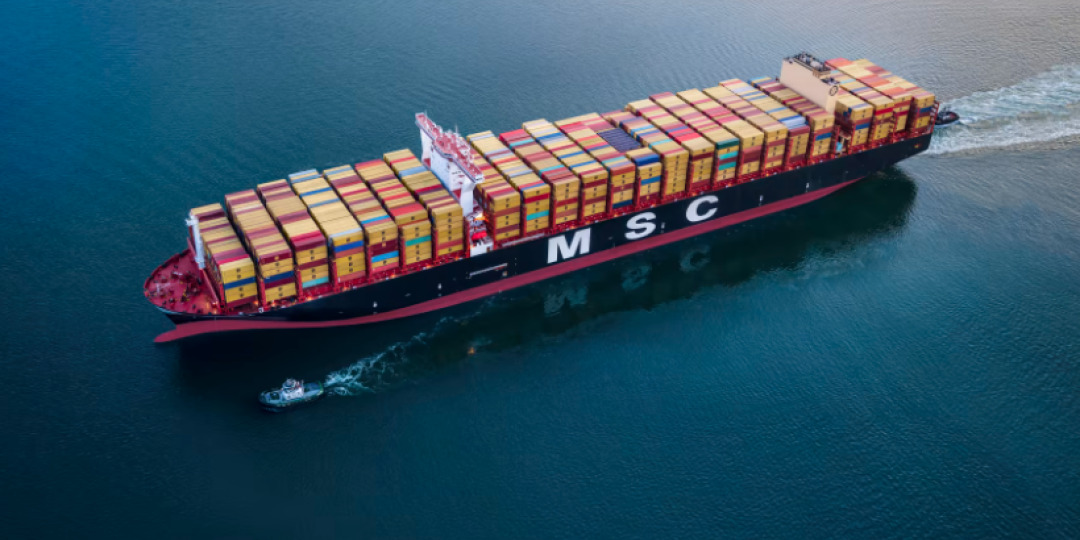Mediterranean Shipping Company (MSC) is on the verge of crossing a new threshold by becoming the first carrier to surpass the five million TEU capacity mark.
Ocean freight think tank Alphaliner has suggested in its latest data analysis, that the shipping line could possibly add up to a third of its existing capacity, considering its order book and shift in strategy.
Already the world's largest container line by capacity, MSC is said to be a few weeks away from hitting the five-million mark, Alphaliner has said.
In mid-May, it already had a total calculated capacity of 4 956 720 TEU, translating to 18.5%.
The data analysis company anticipates that MSC is likely to hit the mark by the end of May as it takes delivery of its new class of 24 000 TEU plus containerships and a new class of 16 000 TEU Neo Panamax vessels.
Both vessel types are being built in China.
Gianluigi Aponte, a young Italian seaman and former bank teller, founded the shipping line with just one vessel in 1972 and has grown the still privately-owned family-owned business into the world's largest global shipping giant by capacity.
MSC grew from one million TEU in 2007 to two million in four years.
Ten years later, the company hit three million TEUs before surpassing the four million mark in 2021, unseating Maersk from the top spot as the carrier with the highest capacity at 4.3 million in 2022.
The third-largest carrier, French-owned CMA CGM Group, has a capacity of just under 3.5 million TEU.
MSC has grown its capacity by more than 16% over the past year and now owns 753 ships, according to Alphaliner's Top 100 ranking, 65% of which are company-owned.
It’s forecast that MSC could reach 6.75 million TEU in two years but is likely to cut back on its smaller vessels, which could shrink this to six million TEUs.
It is not surprising, then, that MSC and Maersk announced in January that they will be ending their 2M vessel-sharing alliance when the 10-year agreement comes up for renewal in 2025.
Both shipping lines are already making moves to operate several critical routes independently. – SOURCE: Maritime Executive.













